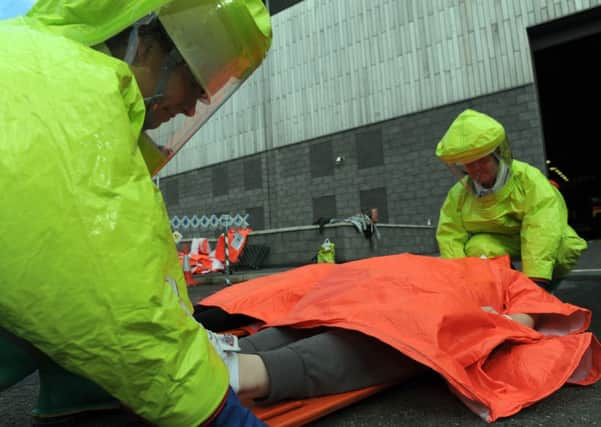Police staged crisis scenarios in West Yorkshire to test prototype Athena mobile app


Reviews held in the wake of the 2011 riots highlighted how social media and technology had helped fuel disorder in London and other UK cities.
Project Athena’s prototype mobile app seeks to turn that on its head, helping emergency services to gather first-hand intelligence from the public and better co-ordinate responses.
Advertisement
Hide AdAdvertisement
Hide AdIt is the result of a three-year research project led by West Yorkshire Police in collaboration with analytics firm SAS and Sheffield Hallam University’s Centre of Excellence in Terrorism, Resilience, Intelligence and Organised Crime Research.
Centre director and professor of informatics Babak Akhgar said: “SAS enables us to sift through enormous quantities of data extremely quickly, so we can cut through the noise to the critical facts. By enabling citizens to contribute their insight, we give emergency services the understanding they need to make better decisions about how to respond and ensure the right resources are sent from the outset.”
Using the app, people witnessing an incident could share written reports, video and pictures. Police would also be able to warn other users nearby.
It was tested during exercises at the Carr Gate facility in Wakefield, which includes a public order training building complete with realistic streets.
Advertisement
Hide AdAdvertisement
Hide AdJessica Gibson, the force’s project manager, said: “In the test scenario, the commanding officer received excellent intelligence about events unfolding on the ground.
“This meant officers were dispatched much faster than we originally anticipated, helping us rapidly restore order.”
Although the project funded by a European Commission grant has now ended, the consortium partners are still investigating how the prototype model can be put to use.
SAS UK and Ireland vice president Charles Senabulya said: “To protect citizens, emergency services must act quickly and accurately assess new threats to deliver a rapid, co-ordinated and effective response.
“From simulated earthquakes in Turkey to hypothetical mudslides in Slovenia, the prototype Athena solution continues to show great promise.”